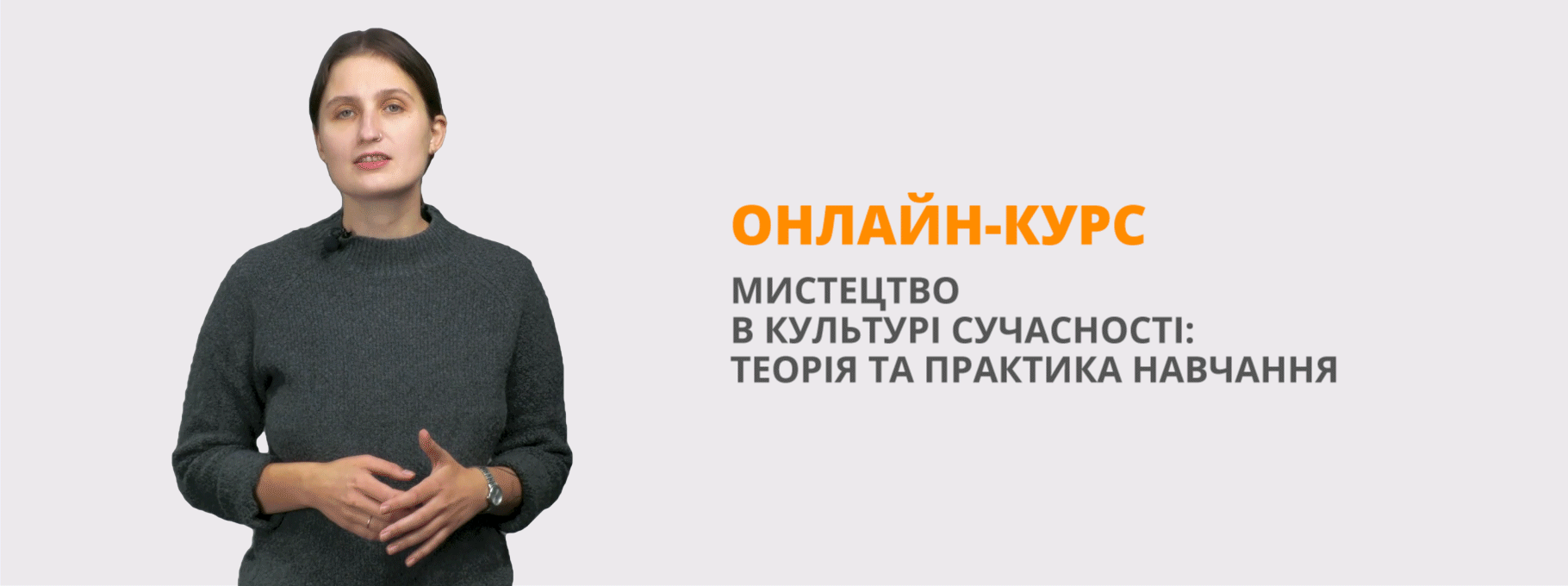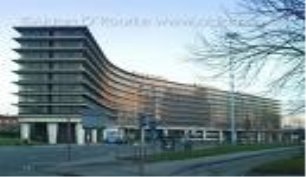Конспект уроку з англійської мови для 8 класу на тему " Around the United Kingdom of Great Britain and Northern Ireland."
Конспект уроку з англійської мови для 8 класу на тему " Around the United Kingdom of Great Britain and Northern Ireland" з використанням елементів рольової гри.
Lesson 8
Theme. Around the United Kingdom of Great Britain and Northern Ireland.
Objectives:
- Practical: to systematize students’ knowledge of the United Kingdom of Great Britain and Northern Ireland.
- Educational: to activate their vocabulary on the topic; to deepen students’ knowledge on the topic; to stimulate students’ to know more about cultures and traditions of the United Kingdom.
- Developing: to master and improve student’s language skills in oral and written speech using various forms of work; to develop thinking, imagination and creativity.
- Upbringing: to develop students’ respect for the English traditions and cultures.
Equipment: map of the United Kingdom of Great Britain and Northern Ireland; a tape-recorder, a CD with the song “Candle in the Wind”; the poem about England by George Byron; cards “Hidden Words”, the texts about some British cities; a crossword; computer presentation; the dialogue with missing phrases; the texts about some parts of the UK; “Key-facts”.
Type of the lesson: generalization and systematization of knowledge on the topic.
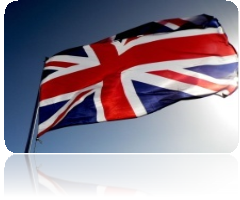
Procedure
I. The beginning of the lesson.
1. Greeting.
T: Good morning, children. I am glad to see you today
2. Introduction the theme and aims.
T: Today we are going to have our final lesson on the topic “Geographical outlook”. The theme of our today’s lesson is “Around the United Kingdom of Great Britain and Northern Ireland”. We’ll speak about the geographical position of the UK, cities and some other aspects of the country.
3. Warming up.
T: Now, read a poem written by George Byron and try to guess what country it is devoted to. Besides, this poem begins with the name of this country.
… With all thy faults, I love thee still,
I said at Calais, and have not forgotten it.
I like the taxes, when they are not so many;
I like a sea – coal fire, when not too dear;
I like a beefsteak too, as well as any;
Have no objection to a pot of beer;
I like the weather when it is not rainy,
That is, I like two months of every year.
P1: I think this poem is devoted to England.
T: Yes, you are right. This poem begins with the word “England”. As you know, it is a part of the UK. Before speaking and doing some tasks about the UK, let’s revise some lexical material.
II. The main part of the lesson.
1. Vocabulary Practice.
a) T: Some words are hidden among the letters. Find them and then read aloud.
Dfehighlandsoptributaryogfindustryklmxyinfluenceaytinhabitanttogmkilometrecesfcompassfsseparatebgemoccupyaftkingdomafmtobewashed.
b) T: Match the following words with their meanings.
|
1. climate 2. continent 3. island 4. strait 5. border 6. territory 7. population 8. inhabitant 9. area
|
a) the official line that separates two countries b) one of the people who live in a particular place c) a large mass of land surrounded by sea d) the typical weather conditions in a particular area e) a narrow passage of water between two areas of land, usually connecting two seas f) a particular part of a country, town, etc g) the number of people living in a particular area, country h) a piece of land completely surrounded by water i) the land of a particular type or the land that is owned or controlled by a particular state. |
Keys: 1d, 2c, 3h, 4e, 5a, 6i, 7g, 8b, 9f.
c) Give synonyms to the words or words – combinations.
1. highlands hills
2. immense huge
3. to make up to compose
4. prominent outstanding
5. to flow into to fall into
6. main chief
7. unsuitable uncomfortable
8. region area
9. to separate to divide
2. Role play.
T: Imagine the situation. You are English pupils and I am from Ukraine. I want to know some information about this country. You should help me. Answer my questions:
- What is full name of your country?
- How many parts does the UK consist of? What are they? Show them on the map.
- How many parts does Great Britain consist of?
- What territory does Northern Ireland occupy?
- What river does the capital of London stand on?
- What can you say about the rivers of Great Britain?
- Give me some information about the mountains of Great Britain.
- What is Scotland famous for?
- What colour is one of the symbols of Ireland?
- What can you say about the climate of Great Britain?
- What famous places of London do you know?
- What is the official language of the UK?
- What is the name of the British flag?
- How many crosses are there on the flag of the UK?
- Is the UK an European country? (Yes, it is. It lies in the northwest of Europe).
3. Chain work.
T: Now is your turn to do this task. Ask your classmate a question. Do it one by one.
Example. P1: What is the longest river in Great Britain?
P2: The Severn is the longest river in Great Britain.
What river does London stand on?
4. Guide practice.
T: Arrange the information given below under the proper heading.
(A) England (B) Scotland (C) Wales (D) Northern Ireland
1. To the north there are higher lands and mountains, so this territory is called the Highlands.
2. It is one of the cleanest regions of the United Kingdom. Its main city is Belfast.
3. Cardiff is a big port and the capital of the region.
4. Cambridge and Oxford, famous for their universities, are in this part of Great Britain.
5. Shipbuilding, textile and chemical industries are centred in Belfast and Londonderry, the other parts are agricultural.
6. The region is known as the Land of Songs.
7. The region is famous for its lakes known as lochs.
8. London, the capital of the United Kingdom, stands on the river Thames.
9. The highest mountain in Great Britain, Ben Nevis, is in this part of the country.
10. This part of the United Kingdom is situated in the northeastern part of Ireland.
11. There is the dragon on the flag of this country.
12. In this country people are crazy about gardening.
13. In this country you may see different shades and tones of green.
14. In this country men wear skirts called the kilts.
15. The symbol of this country is red rose.
Key: 1.Scotland, 2.Northern Ireland, 3.Wales, 4.England, 5.Northern Ireland,
6.Wales, 7.Scotland, 8.England, 9.Scotland, 10.Northern Ireland, 11.Wales, 12.England, 13.Wales, 14.Scotland, 15.England.
5. Reading.
T: Put the sentences in the texts about some British cities in the right logical order. Read the texts.
1. The University of Manchester founded in1880 is famous for its studies.
2. With its large suburb Salford Manchester has a population of nearly one million.
3. Manchester is the centre of the cotton industry.
4. Manchester has few ancient buildings, but few English cities have better parks of which there are over fifty. The largest of them is Heaton Park. Manchester is rich in libraries and schools.
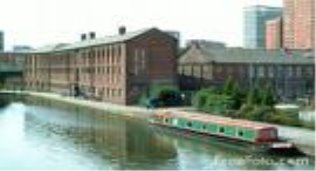 Text 2
Text 2
1. It is a centre of the iron industry.
2. The district around Birmingham is known as the Black Country.
3. It is a land of factories and mines. Steam-engine, motor-cars, railway carriages, bicycles are manufactured in the factories of the Black Country.
4. In the heart of England about 112 miles north-west of London is Birmingham.
5. Birmingham is a city with population of over one million.
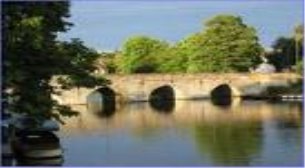 Text 3
Text 3
1. The first place we went to was Shakespeare's birthplace - a small house with small rooms in the centre of Stratford. We saw the very room where Shakespeare was born. Lots of people who had visited the house had written their names on the walls. It seemed a wrong thing to do - although among the names were Walter Scott, Dickens.
2. Stratford is a very interesting town, right in the centre of England. It is nice to think that Shakespeare was born right in the heart of England and in the midst of the country that is so typically English.
3. There are no mountains or deep valleys near Stratford; there's nothing of the grand scenery that we have in Scotland, but there are beautiful woods, green fields, a quiet gentle river - the winding Avon - and lovely houses, black and white with thatched roofs.
6. Solve the crossword
![]()
![]()
![]()
![]()
![]()
![]()
![]()
![]()
![]()
![]()
![]()
![]()
![]()
![]()
![]()
![]()
![]()
![]()
![]()
![]()
![]()
![]()
![]()
![]()
![]()
![]()
![]()
![]()
![]()
![]()
![]()
![]()
![]()
![]()
![]()
![]()
![]()
![]()
![]()
![]()
![]()
![]()
![]()
![]()
![]()
![]()
![]()
![]()
![]()
![]()
![]()
![]()
![]()
![]()
![]()
![]()
![]()
Down: 1. One of the biggest ports. (Liverpool)
2. One of the biggest industrial cities. (Manchester)
4. The birthplace of William Shakespeare. (Stratford - on – Avon)
5. The capital of Scotland. (Edinburgh)
6. The capital of Northern Ireland. ( Belfast)
Cross: 1. The capital of Great Britain. (London)
2. The capital of Wales. (Cardiff)
7. Writing.
T: Complete the dialogue “Travelling by plane”. Some phrases are missing, try to write them down.
Travelling by plane
P1: Good morning!
P2: Good morning! I am listening to you.
P1: I should like a ticket on a plane to London, please.
P2: All right. Do you want one ticket?
P1: Yes, please. Is this a direct flight?
P2: No, it isn’t. It makes some stops. And in Manchester you must change for another plane.
P1: How much does it cost?
P2: It costs 500$. Here is your ticket.
P1: Thank you. Good - bye.
P2: Good – bye.
8. Pair work.
T: Your home task was to make dialogues about travelling to London. Act out them, please.
Examples:
Dialogue 1. “How to get to the tourist information office”
P1: Excuse me, sir.
P2: Yes?
P1: How can I get to the tourist information office?
P2: You should go along Queen Street. Turn right. And you will see the tourist information office.
P1: Thank you.
P2: Don’t mention it.
Dialogue 2. “At the tourist information office”
P1: Hello. Could you give us some information about London’s most famous sights?
P2: What have you already seen in London?
P1: We haven’t seen anything yet. We have just come.
P2: Have a look at the leaflets over there and take what you like.
P1: I think the National Gallery will be good. There aren’t famous double – deckers in London’s streets now, are there?
P2: No, there aren’t. But you go on a London sightseeing tour on a double – decker bus for tourists.
P1: Great! I have never gone on a double – decker. Let’s start with the sightseeing tour!
9. Listening.
1) Pre -Listening Activity.
T: Let’s come to another stage of the lesson. Now, you’ll listen to the song “Candle in the wind” sung by Elton John. This song is dedicated the memory of Princess Diana, lady D, Prince Charles’s wife. She died in the car accident in 1997.
2) While-Listening Activity.
T: Listen to the song and fill in the gaps with the words from the box. And then we’ll sing it together.
Candle in the wind
Elton John
"Goodbye England's _____ ,
May you ever grow in our hearts.
You were the ____ that placed itself
Where lives were torn apart.
You called out to our country,
And you whispered to those in pain.
Now you ____ to heaven,
And the stars spell out your name.
And it seems to me you lived your life
Like a ____ in the wind:
Never fading with the ____
When the rain set in.
And your footsteps will always fall here,
Along _____ greenest hills;
Your candle's burned out long before
Your legend ever will.
_____ we've lost;
These empty days without your____ .
This torch we'll always carry
For our nation's golden child.
And even though we try,
The ____ brings us to tears;
All our words cannot express
The ____ you brought us through the years.
Goodbye England's rose,
From a country lost without your ____ ,
Who'll miss the ____ of your compassion
More than you'll ever know."

3) Post -Listening Activity.
T: Choose the correct answer the questions.
1) Who is named “England’s rose” in the song?
a) Princess Anna
b) Queen Elizabeth
c) Princess Diana
2) Who does the Princess Diana belong to now?
a) heaven
b) people
c) country
3) Who spells out her name?
a) the people of England
b) the stars
c) her children
4. Where will her footsteps always fall?
a) along England greenest hills
b) all over the world
c) along the streets
5. What is compared with a candle in the wind in the song?
a) princess’s life
b) princess
c) princess’s death.
Keys: 1c, 2a, 3b, 4a, 5a.
10. Pupil’s presentation of Scotland.
T: Let’ speak about parts of the UK. Your classmate has prepared presentation of Scotland. Now you have possibility to get to know some interesting information.
11. Group work.
T: Each group is suggested a text to read. Then complete the key facts.
ENGLAND
England occupies the largest part of the island of Great Britain. England has an area of more than 50 thousand square miles and a population of more than 46 million people.
England is bounded on the north by Scotland, on the east by the North Sea, on the south by the Strait of Dover and the English Channel, and on the west by Wales, the Atlantic Ocean and the Irish Sea. England is mostly a lowland country. In the north of England there are the Pennine Mountains, but the rest of England is almost flat. The most important rivers are the Thames, the Severn and the Trent. There are many ports including Bristol, Liverpool and London. The climate is temperate: temperatures range from 5 degrees bellow zero in winter to 25 degrees above zero in summer.
England is a densely populated part of the UK. The population of England is greater than that of all other parts of the United Kingdom combined.
England is the heart of Britain. It is the richest, the most fertile and most populated part of the country.
In Northwest England, there are many beautiful lakes with green, wooden or grassy shores, grey mountains all around. This region is called the Lake District.
Southern England (also called the South) is dominated by London and its suburbs, which stretch for miles around the capital. This is the most important region in the country in terms of industry, agriculture and population.
The South-East is the largest and more highly developed region with London and Greater London area as the major centres.
- Name: England
- Area:
- Population:
- Climate:
- Rivers:
- Ports:
WALES
Wales is a small country bounded on the north and west by the Irish Sea and on the south by the Bristol Channel. It has an area of more than 8 thousand square miles and the population - about 3 million people. The biggest towns are Swansea, Cardiff and Newport.
Wales is traditionally divided into North Wales and South Wales (sometimes into North Wales, Mid Wales and South Wales). Wales is a highland country of old hard rocks. North Wales is a country of low mountains and deep valleys; South Wales is a land of high hills and wide valleys. So its surface is largely mountainous, reaching 3,560 feet in Snowdon (the mountain in northwest Wales), the highest point in southern Britain (in England and Wales). 6% of Wales is covered by forest, and much of the country is pasture-land for sheep and cattle.
Although some parts of Wales are good for farming, the mountainous area running all the way up the centre of the country has very poor land.
The capital of Wales is Cardiff, the largest city of Wales. Cardiff is situated near the mouth of the river Taff. It is an important industrial city and a port. It is also an administrative and educational centre.
The second largest city in Wales is Swansea where mainly steel production can be found. To the north of Wales is the large port of Liverpool, and to the south -the busy port of Bristol. In between these two English towns you'll hear two languages spoken: Welsh and English. The Welsh language is commonly spoken by about 20% of the population.
The Welsh people, especially in rural areas, are fond of music, singing, poetry and drama. There is no other part of the British Isles where national spirit is stronger, national pride more intense or national traditions more cherished than in Wales. They still proudly wear their national dress on festive occasions; the Welsh language is taught side by side with English in schools.
Wales has its own flag called the Welsh dragon.
- Name: Wales
- Area:
- Population:
- Cities:
- Languages:
- Mountain:
NORTHERN IRELAND
Ireland is the second largest of the British Isles lying in the Atlantic off the west coast of Great Britain.
The island of Ireland is politically divided into two parts: Northern Ireland, which forms part of the United Kingdom of Great Britain and the Republic of Ireland.
Northern Ireland has a population of about 1,5 million. It occupies 1/5 of the island of Ireland. Its capital city is Belfast. It is the leading industrial centre and a large port.
Its chief industries are the production of linen and other textiles, clothing, shipbuilding, engineering.
Northern Ireland is surrounded by the sea to the north and east. The west coast of Northern Ireland is characterised by steep cliffs and hundreds of small islands torn from the mainland mass by the powerful forces of the Atlantic Ocean.
The outstanding feature of the Irish weather is its changeability. Extremely high or low temperatures are unknown. The Irish Sea also has some warming influence in winter. The rainfall over most of Ireland is not as great as it is sometimes supposed. Ireland is considered as a whole, drier than either Wales or Scotland. There is an old Irish saying that Ireland must be the cleanest place in the world, because God washes it every day.
There are low hills and peaks of rocks in the northwest, while the northeast sector of the island is a plateau. The Mourne Mountains in the southeast slope down to
Lough Neagh, the largest lake in the British Isles. The rivers of Ireland are short, but deep. The largest river is the Shannon.
- Name: Northern Ireland
- Area:
- Population:
- Weather:
- Industries:
- Lake:
III. Finishing of the lesson.
1. Summing up.
T: Dear children! Today we have spoken a lot about the UK. You worked hard and I’m satisfied with your answers. I am going to give you only good and excellent marks. While our lesson we were developing our listening, speaking and writing skills. Thank you very much.
2. Homework.
T: Write a letter to your friend who lives in Scotland, tell him/ her what you know about this part of the UK, ask him/her some questions, to get more information about Scotland.
3. Analysis of pupils’ answers. Assessments .

Додаток №1
Elton John
Candle in the Wind
"Goodbye England's ____,
May you ever grow in our hearts.
You were the ____ that placed itself
Where lives were torn apart.
You called out to our country,
And you whispered to those in pain.
Now you ____ to heaven,
And the stars spell out your name.
And it seems to me you lived your life
Like a ____ in the wind:
Never fading with the ____
When the rain set in.
And your footsteps will always fall here,
Along ____ greenest hills;
Your candle's burned out long before
Your legend ever will.
____ we've lost;
These empty days without your ____.
This torch we'll always carry
For our nation's golden child.
And even though we try,
The ____ brings us to tears:
All our words cannot express
The ____ you brought us through the years,
Goodbye England's rose,
From a country lost without your ____,
Who'll miss the ____ of your compassion
More than you'll ever know."
1
-
Цікавий і змістовний урок.


про публікацію авторської розробки
Додати розробку
